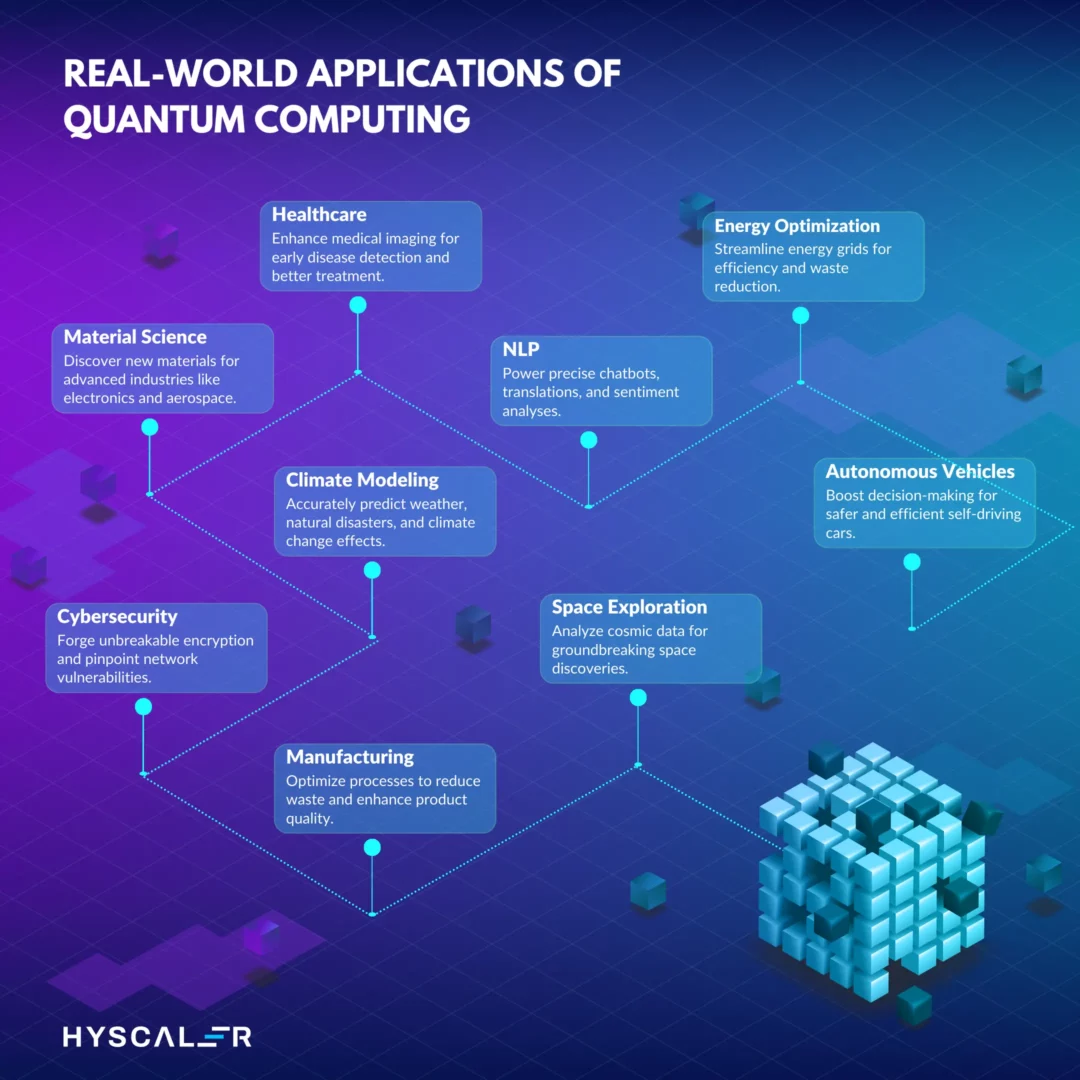Table of Contents
In the ever-evolving landscape of technology, two cutting-edge fields are rapidly converging, promising to reshape industries, solve complex problems, and unlock unprecedented possibilities. Quantum computing and artificial intelligence (AI) are no longer on the distant horizon; they are intertwined in a symbiotic relationship that holds the key to the future of computing and problem-solving. In this article, we’ll delve into this fascinating alliance, exploring its potential, recent advancements, and how it impacts tech-savvy professionals, CTOs, and senior developers like you.

The Quantum Leap: Unleashing Computing’s Full Potential
Quantum computing represents a seismic shift in computational power. Unlike classical computers that rely on bits (either 0 or 1), quantum computers leverage quantum bits or qubits, which can exist in multiple states simultaneously due to the principles of superposition and entanglement. This quantum advantage enables them to tackle complex problems exponentially faster than their classical counterparts.
AI and Quantum Computing: A Perfect Pairing
While AI has made remarkable strides in machine learning, natural language processing, and computer vision, it often grapples with resource-intensive tasks and the limitations of classical computing. This is where quantum computing steps in as a game-changer.
- Quantum Machine Learning (QML): Quantum computers excel in optimization problems, making them ideal for training AI models more efficiently. QML algorithms can identify patterns and optimize parameters at unprecedented speeds, propelling AI capabilities to new heights.
- Breaking Encryption: The symbiosis between quantum computing and AI extends to cybersecurity. Quantum computers can potentially break existing encryption methods, necessitating the development of quantum-resistant AI-powered encryption systems.
Real-World Applications of Quantum Computing: From Drug Discovery to Finance

The fusion of quantum computing and AI promises transformative applications across industries. For instance:
- Pharmaceuticals: Quantum-AI hybrids can expedite drug discovery by simulating molecular interactions with unparalleled accuracy, drastically reducing research time.
- Finance: Complex risk assessments and portfolio optimizations, which once took days, can be performed in real-time, guiding investment decisions.
- Supply Chain Optimization: AI-powered quantum computing can optimize logistics and supply chain management, reducing costs and environmental impact.
- Material Science: Quantum-AI systems can accelerate the discovery of new materials with unique properties, revolutionizing industries such as electronics, energy storage, and aerospace.
- Healthcare: Quantum-AI can enhance medical imaging, making it possible to process and analyze vast amounts of medical data quickly. This can lead to early disease detection and more effective treatment planning.
- Climate Modeling: Climate scientists can use Quantum-AI to create highly accurate models of climate systems, aiding in the prediction of weather patterns, natural disasters, and the impact of climate change.
- Energy Optimization: Quantum-AI can optimize energy grids, helping to reduce energy waste, enhance renewable energy integration, and make energy distribution more efficient.
- Cybersecurity: Quantum-AI can bolster cybersecurity by developing unbreakable encryption methods and quickly identifying vulnerabilities in complex networks.
- Autonomous Vehicles: Quantum-AI can improve the decision-making processes in autonomous vehicles, making them safer and more efficient.
- Natural Language Processing: Quantum-AI can significantly advance natural language processing tasks, enabling more accurate and context-aware chatbots, language translation, and sentiment analysis.
- Astronomy and Space Exploration: Quantum-AI can analyze vast datasets from telescopes and space probes, helping astronomers make new discoveries about the cosmos.
- Environmental Conservation: Quantum-AI can analyze ecological data to aid in conservation efforts, including wildlife tracking, deforestation monitoring, and biodiversity assessments.
- Manufacturing: Quantum-AI can optimize manufacturing processes, reducing waste and improving product quality.
These applications demonstrate the vast potential of Quantum-AI hybrids to revolutionize various industries and address complex challenges in ways previously deemed impossible.
Developers at the Helm: Building for the Quantum Future

In this rapidly evolving landscape, your role as a senior app or web developer becomes increasingly crucial. As quantum computing and AI advance, it’s essential to envision future coding paradigms and adapt accordingly. Quantum programming languages like Q# are fascinating and becoming indispensable tools in your toolkit.
Moreover, quantum software development kits (SDKs) empower developers to harness the immense potential of quantum computing and seamlessly integrate it into AI applications. By actively engaging with quantum programming and staying updated on the latest advancements, you position yourself at the forefront of this quantum AI revolution, driving innovation and shaping the future of technology.
Stay Ahead of the Curve: Continuous Learning is Key
As the symbiotic relationship between quantum computing and artificial intelligence continues to evolve and expand, it becomes increasingly important to stay informed and up-to-date with the latest developments in these fields. To do this, actively engage with both quantum computing and AI communities. This can involve participating in online forums, joining professional groups, or attending industry conferences. Additionally, make it a point to attend webinars and workshops that focus on the intersection of AI and quantum technology. These events are valuable resources for learning about the latest research, networking with experts, and discussing emerging trends.
Furthermore, explore various quantum development platforms that are available. Many of these platforms offer tools and resources that can help you understand and experiment with quantum algorithms and their integration with AI technologies. As quantum hardware becomes more accessible and user-friendly, seize the opportunity to experiment with AI-quantum hybrids. This hands-on experience is crucial for discovering innovative solutions and understanding the practical implications of combining AI with quantum computing. By immersing yourself in the practical aspects of these technologies, you can contribute to and benefit from the advancements in this fascinating and rapidly evolving field.
Conclusion: The Quantum-AI Frontier Awaits
The convergence of quantum computing and AI offers a thrilling frontier for tech enthusiasts, CTOs, and senior developers. It’s a realm where innovation knows no bounds, and the potential for groundbreaking discoveries is limitless. By understanding this symbiotic relationship and actively participating in its evolution, you position yourself at the forefront of a technological revolution that will redefine industries, shape economies, and unlock the full potential of computing.
Are you ready to embark on this journey into the Quantum-AI realm? The future is here, waiting for visionaries like you to shape it.